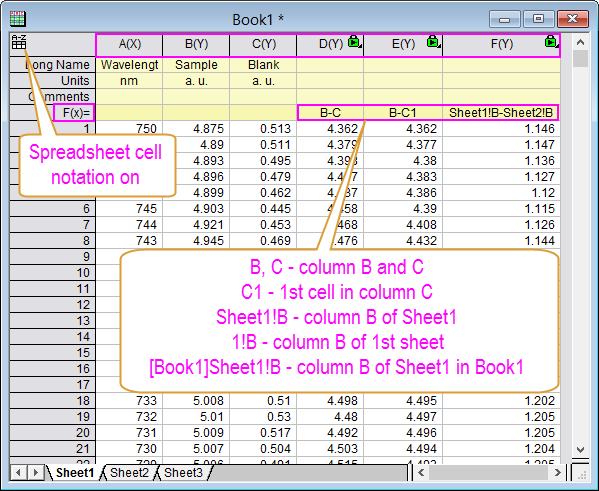...
| JIRA | Summary | Details | |||
|---|---|---|---|---|---|
ORG-9939 ORG-15402 S1 |
|
A new properties is added to Page object. Use page.xlcolname to control the Spreadsheet Cell Notation in current Workbook window. A new macro clrx is added to globally turn off the Spreadsheet Cell Notation in Origin. Once the macro has been run, the Spreadsheet Cell Notation will be always off even restart Origin.
A new properties is added to Page object. Use page.xlcolname to control the Spreadsheet Cell Notation in current Workbook window. A new macro clrx is added to globally turn off the Spreadsheet Cell Notation in Origin. Once the macro has been run, the Spreadsheet Cell Notation will be always off even restart Origin
| |||
| ORG-14598 | Spreadsheet cell notation in Column Formula
| In F(x) cell or Formula box of Set Column Values dialog, use A3 instead of A[3] to refer to 3rd cell in column A. System variable @XCA=0 to toggle this off | |||
| ORG-10977 | Formula updates when related column position is changed with Column Short Name Restriction is on | System variable @DEFU = 1 to disable automatically update formula and return to the old code. | |||
| ORG-14364 | Improve F(x) row support | Lower case i and j refer to row number and column number respectively, while upper case I and J refer to column I and J respectively. Lower case letter, except for i and j, will be converted to its upper case automatically matching the existing column. New system variable @AUN = Auto UpperCase Name is added and default is 1 = ON. XLColName is not only available to LabTalk script but also available in OriginC now. |
...

